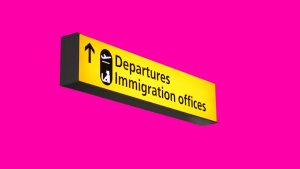Adapting to a new environment can be difficult. You might be moving to the Netherlands with family, alone or maybe you are even moving to another country or overseas for work, it can be a very daunting prospect. However, being prepared will give you the highest chance of intercultural competence which will, in turn, result in a successful relocation.
A study was conducted on the effects of language barriers and cultural shock on the performance of expats in organizations and 67% of the respondents reported that miscommunication and confusion due to cultural differences and language b barriers created inefficiencies in the organization. 40% further stated that all this affected collaboration. Fortunately, there are plenty of options to help you or your company eliminate some of these barriers when it comes to relocating.
The Importance of language and culture training for expats
Language and culture training will help minimize some of the challenges described above. It’s also more than just a solution for expatriates, it also poses many benefits for organizations, such as diversifying their skill set.
Cultural training is very important in terms of cultural integration. Even a little grasp of the local Dutch language can play a significant role in helping you get oriented and understand the new culture and your surroundings. We highly recommend people relocating to the Netherlands or any other country to have language and cultural training. Below are 3 steps to help you get started:
1. Assess your cultural and language needs
You need to have an idea of how fluent you are in the new local language, and how fluent you want to be. Cross-cultural training mostly includes a comprehensive language and cross-cultural assessment which will inform the level and content of your training course, a program that will specifically be designed for your needs, and a personalized progress report that reveals how far you’ve come.
In most cases, companies that offer cross-cultural and language learning services will also have other services that are related to international relocation such as translation. It’s not everyone that will have a basic understanding of the new local language and for such reasons, it’s best to seek help from professionals when it comes to translating your legal documents.
2. Learning strategy
Once you have an idea of your language and cultural training needs, you can then go ahead and pair them up with a solution that’ll work best for you. There are two options available:
- Cultural training and language learning as an employee benefit: This would be good for organizations that recognize the essence of cultural training for their employees, but don’t necessarily require them to do so.
- Formal language training: This model works best for companies with specific goals that require knowledge of the new local language. For instance, companies that are strategically expanding into new markets abroad.
3. Finding the right solution
Essentially, there are two options when it comes to cultural and language training. Each has its advantages and disadvantages and the ‘right’ option will largely depend on your desired strategy and needs. The two options are online learning and face-to-face learning.
Face-to-face learning is mostly known as the most effective way to learn due to some of the advantages it comes with such as body language, smiles, and posture that help with communication. These can influence how one’s intentions and speech are perceived. The other benefit it comes with is that there are no delays or lags or technical interruptions when learning. On the other side of the coin, the programs tend to be a bit pricier than online training programs. There is also a lack of flexibility in terms of location and time.
Online learning relatively makes it much easier for fresh expats to learn the basics of a language, culture, or even conversational phrases. The great thing is that they can also be easily accessible from anywhere, at any time. This would be very ideal for people with busy schedules or people who like things to move at their own pace. There’s so much flexibility when it comes to location and scheduling the training sessions. However, as previously mentioned, sometimes they do come with technological issues such as lag, internet connectivity issues, etc.
For expats, the factors of cultural shock and language barriers should be considered as a factor in their relocation. As much as cultural training is important, language plays a significant role when it comes to cultural integration. When abroad, one may feel lost and baffled by many new things to learn. As such, at Jimble, we always do our best to try and ensure that you have the smoothest move and settle in well when you relocate.











